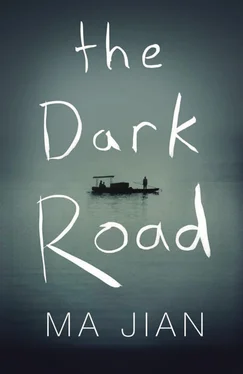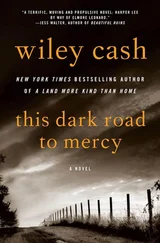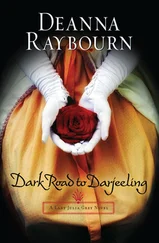‘It won’t be long now. I read on the internet that the government said that Confucian thought still has a lot to teach us. They’re even publishing books explaining how we can use his philosophy in our daily lives.’
‘That was just for the Olympic bid. The Party wanted to give the impression that China still has a strong traditional culture, even though thirty years ago it ripped Confucianism to shreds and replaced it with the foreign creed of Marxism — Leninism.’
‘Who cares what the Party’s motives are? Confucius is officially back in favour, so perhaps little Heaven will be less afraid to come out now… You must stop buying Nannan sweets all the time. She already has two rotten molars. Poor girl. It is strange she’s started menstruating so young. I didn’t have my first period until I was fourteen.’
‘It must be the chemicals in the water.’
‘Let’s leave her to sleep and go for a walk.’ Meili tucks a quilt around Nannan then changes into her favourite pale blue jeans. She saw a picture on the internet the other day of a woman in stonewashed jeans and a white shirt knotted at the waist, and liked it so much she used it as the background for her computer screen… Won’t you come out, little one? she whispers, glancing down at her bulge. Tomorrow, you’ll have been inside me for five years. Give your poor mother a break.
Since the migrant school broke up for the Spring Festival holiday, everything has quietened down. In the moonlight, the concrete yard, durian tree and aluminium warehouse appear as scratched and blurred as an old black-and-white photograph. Along the road that follows the river, ghostly figures drift through the darkness with lanterns swinging from their hands. Light from a street stall reveals a woman carrying vegetables on a shoulder pole and a man wearing a large baby’s head made out of papier mâché. Fireworks explode in the sky, and the outline of distant buildings becomes briefly visible. When Kongzi and Meili reach the end of the road, they follow the crowds to the bustling forecourt of the Town God Temple. Pink and red paper lanterns hang down from the surrounding trees and the temple’s pointed eaves. Food stalls decorated with festive red banners are selling steamed buns, sesame rolls and peach-shaped rice cakes. The stalls nearer the entrance sell imitation paper money and bundles of incense sticks.
‘Are those two supposed to be married?’ Meili asks, pointing at the painting on the entrance door of a beautiful girl and a white-bearded old man.
Kongzi has no idea who those two deities are supposed to be. He takes Meili’s hand and leads her inside, saying, ‘Let’s light some incense and ask Sacred Father of the Sky to grant us good fortune in the new year.’
‘Our accountant comes to this temple every day after work. She said she’s going to pray to the God of Wealth on the fourth day of Spring Festival, the Golden Flower Mother on the sixth, then she’ll visit the Shrine of the King of Medicine and the Temple of Lady Wang. She never stops…’
The temple’s interior is brightly lit with candles, and thick smoke is rising from an incense column that is taller than Meili. People rush past, carrying roasted swine heads, fried fish and deep-fried chickens to place on the altars of their chosen deities.
Kongzi points to the small statue of the Golden Flower Mother, who is flanked by the God of Grain and the God of Landowners, and says, ‘Look, there she is. The Goddess of Fertility and Childbirth. You should pray to her, and beg for a safe delivery.’
‘Little Heaven is afraid of coming out into this hell — there’s nothing the goddess can do about it,’ Meili says, crossing her arms protectively over her belly. ‘It’s too crowded in here. All those firecrackers going off outside frighten me. What if this place caught fire? Let’s go home. We can come back in the morning.’
‘Don’t say the word “hell” on New Year’s Day!’ Kongzi says angrily.
‘Well, I’m leaving — are you coming with me or not?’ Meili says, her heart racing as images of the burning nightclub flash through her mind.
‘Firecrackers can’t cause fires. Listen, we’ve come all this way, we might as well light some incense while we’re here.’ Then looking up and seeing the terror in Meili’s eyes, he changes his mind. ‘All right, all right, let’s go then.’ They turn round and head for the door, two downcast figures pushing their way through the excited crowd.
Later that night, Meili is woken by another thunderous burst of firecrackers. She wishes she could seal the window and door to keep the noise out. Without peace and quiet, her thoughts cannot rise to the surface. During these past nine years, the only chances she’s had for quiet reflection have been when she’s woken in the middle of the night. At such moments, she’s able to think quietly about her born and still unborn children, and about all the various Meilis: the woman, the mother, the young girl who loved to laugh and sing, the labour camp inmate, the escapee, the businesswoman. She lay awake like this, her mind deep in thought, on the terrible summer night when she felt herself sink to the riverbed with Happiness’s corpse; the autumn nights after Waterborn was taken from her; those muggy nights after Weiwei left and his tortoiseshell glasses lay under her pillow; and this winter night on which she’s learned that Weiwei came all the way to Heaven to look for her. Although the first day of the new year has not yet dawned, she already senses that the past has been brushed away and the new is being ushered in. She knows that if Kongzi is unfaithful to her one more time, she will leave him and make a new life for herself with Tang. To be fair, as far as she knows, Kongzi has only strayed once, and that was only after they arrived in Heaven. Compared to the many men they’ve come across during their travels — powerful cadres who are always surrounded by attractive young women, scruffy peasants who sleep with hair-salon girls several times a week — he’s relatively upright and loyal. Still, when she’s with him, she is never more than a pregnant wife. With Tang, she is a complete person. Over these nine years, she has transformed herself from a shy peasant girl to a strong capable woman. She could never return to those muddle-headed days when Kongzi would boss her about imperiously and she’d obey without question. She thinks of the child that has lived inside her now for five years, untroubled by thoughts of what to eat or drink or fears of what the future might hold. She doesn’t dare contemplate what calamities might have befallen her had they not found refuge in Heaven Township, how many times her belly might have been carved open. The Communist Party has no humanity. For them, killing a baby is no different from swatting a fly. She doesn’t know when Heaven will finally decide to emerge, but when it does, she will gently lower the drawbridge of her castle and let it travel down her dark road into this hell… Yes, it’s time you came out and tested your mettle, little one, she says silently. I can’t protect you for ever. But don’t worry, I won’t force you out before you’re ready. My womb may have been assaulted and abused, but it’s still intact, and allows us to coexist with a certain grace. She smiles to herself, proud of being both a woman and a mother: two identities seamlessly fused into one body. Tomorrow she will sign up for prenatal yoga classes with a teacher trained in Hong Kong. She’s heard the exercises help soften the pelvic bones, making childbirth no more painful than laying an egg. She will also go to Foshan to prostrate before the huge Golden Flower Mother statue, and ask her to protect little Heaven and grant it a safe birth. She knows that once the infant spirit leaves her womb, she and Heaven will have to end their symbiotic existence. She understands as well that although life is a long and arduous trek, with sufficient effort, a degree of comfort can be achieved at the end. Little Heaven will come into the world as an illegal outcast who has no right to an education or a job. Meili will try to earn as much money as she can to create a small path to happiness for this unauthorised child, even though she is still uncertain in which direction happiness lies.
Читать дальше












